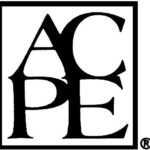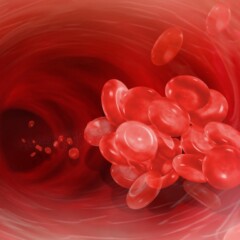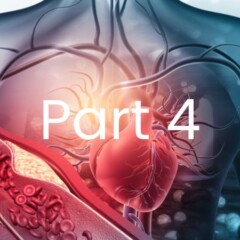Last updated on
Identifying Patients Who Would Most Benefit from PCSK9 Inhibitors
The Cholesterol Wars: Navigating a Shifting Battlefield –
Identifying Patients Who Would Most Benefit from PCSK9 Inhibitors
This course has expired for CME credit, however you can still view and access the event recording.
Table of Contents
ACTIVITY DESCRIPTION / STATEMENT OF NEED
Statin therapy is the recommended treatment for lowering low-density lipoprotein cholesterol (LDL-C) and reducing atherosclerotic cardiovascular disease (ASCVD) risk. However, evidence-based and guideline-recommended therapies, including ezetimibe and PCSK9 inhibitors, continue to be underutilized, even among the highest risk patients. Consequently, an unmitigated burden of cardiovascular risk persists. More education is urgently needed to address this problem. To that end, NATF invites you to join us for a virtual series of webinars that discuss some of these key issues in cholesterol management.
AGENDA
INTENDED AUDIENCE
This program is designed for physicians, pharmacists, nurse practitioners, physician assistants, nurses, and allied healthcare professionals in the fields of internal medicine, primary care, family medicine, hospital medicine, cardiology, and endocrinology.
COST
Participation in this activity is free.
This activity is supported by an educational grant from Amgen
LEARNING OBJECTIVES
Upon completion of the educational activity, participants should be able to:
- Evaluate outcomes data supporting LDL-C reduction and proprotein convertase subtilisin/kexin type 9 inhibitors (PCSK9i) use in high cardiovascular (CV) risk patients.
- Assess indications for PCSK9i use for CV risk reduction and apply that information to a patient case.
- Identify patients most likely to benefit from adding PCSK9i therapy to their treatment regimen and apply that information to a patient case.
- Discuss initiating PCSK9i therapy in CV risk patients and apply that information to a patient case.
- Assess indications for use of PCSK9 inhibitors for CV risk reduction in a patient who has not achieved lipid goals.
- Recognize which patients are most likely to benefit from the addition of PCSK9i therapy to treatment regimen through the lens of both primary and secondary prevention.
- Discuss initiation of PCSK9i therapy in patients with CV risk who aren’t at LDL goal while taking patient values and preferences into consideration and apply that information to a patient case.
FACULTY AND DISCLOSURES

Allen Taylor, MD
Chairman of Cardiology
Medstar Heart and Vascular Institute
Washington, DC
Disclosures: Speaker’s Bureau: Amgen, Esperion

Jorge Plutzky, MD
Director, Preventive Cardiology
Brigham and Women’s Hospital
Boston, MA
Disclosures: Consultant: Alnylam, Altimmune, Amgen, Esperion (Clinical trial steering committee), Merck, MJ Health Lifesciences, Novo Nordisk (Clinical trial steering committee, consultant)
Grants: NIH/NIDDK, Boehringer Ingelheim, Novartis

Anum Saeed, MD
Assistant Professor of Medicine
University of Pittsburgh Medical Center
Pittsburgh, PA
Disclosures: Dr. Saeed has no relevant financial information to disclose.
ACCREDITATION
This activity has been planned and implemented in accordance with the accreditation requirements and policies of the Accreditation Council for Continuing Medical Education (ACCME) through the joint providership of ScientiaCME and the North American Thrombosis Forum. ScientiaCME is accredited by the ACCME to provide continuing medical education for physicians.
Physicians: ScientiaCME designates this online enduring activity for a maximum of 1.00 AMA PRA Category 1 CreditTM. Physicians should claim only credit commensurate with the extent of their participation in the activity.
Nurse Practitioners (NPs): The American Academy of Nurse Practitioners accepts AMA PRA Category 1 Credit(s)™ from organizations accredited by the ACCME. ScientiaCME will provide NPs who successfully complete each activity with a certificate of participation indicating that the activity was designated for AMA PRA Category 1 CreditTM.
Physician Assistants: The American Academy of Physician Assistants accepts AMA PRA Category 1 CreditTM from organizations accredited by the ACCME.
Nurses: may claim credit for activities approved for AMA PRA Category 1 CreditTM in most states for up to 50% of the nursing requirement for recertification. Nursing board continuing education requirements for relicensure vary state-by-state.
Medical Practice Executives: The American College of Medical Practice Executives accepts AMA PRA Category 1 CreditTM from organizations accredited by ACCME.
Pharmacists:
ScientiaCME is accredited by the Accreditation Council for Pharmacy Education (ACPE) as a provider of continuing pharmacy education.

This activity is approved for 1.00 hour (0.10 CEUs) of continuing pharmacy education credit. Proof of participation will be posted within 4 to 6 weeks to the NABP CPE profiles of participants who have successfully completed the post-assessment with a passing score of 70%.
ACPE UANs and activity types: 0574-9999-22-045-H01-P
This activity is an Application (A)-type activity.
Released: November 22, 2022
Expires: November 22, 2023



